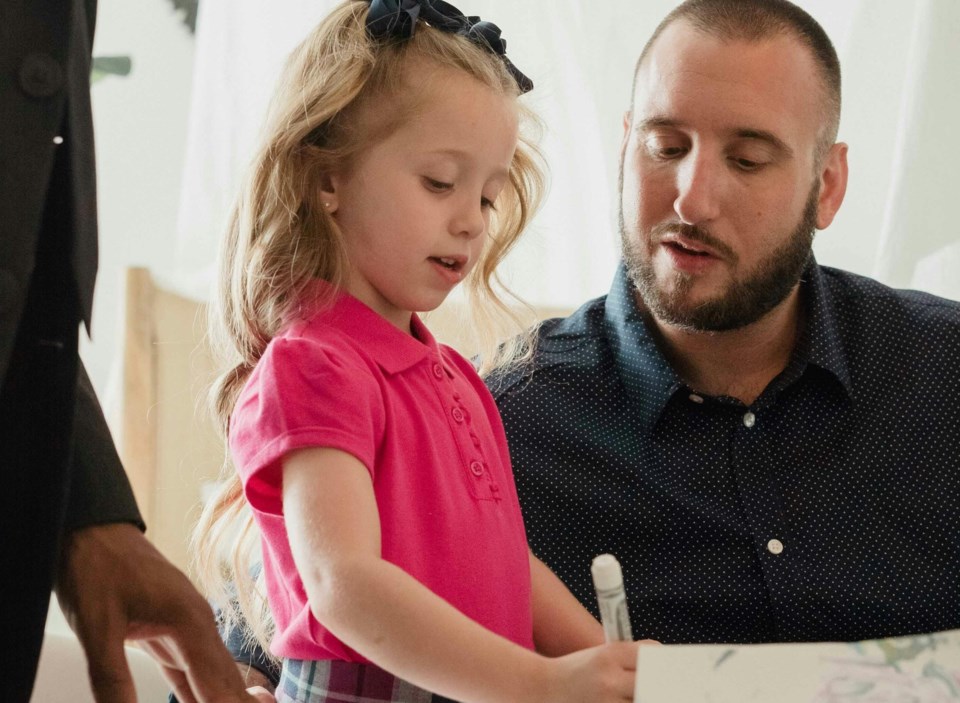The recent reduction in caseworker positions in Alberta's Family Support for Children with Disabilities (FSCD) program will likely affect hundreds of families and add to what advocates say is an “exceedingly long” waitlist to access supports.
Disabled children and families in Alberta are facing wait times of over two years to get an individualized contract with a caseworker, says Keltie Marshall, parent and co-founder of Hold My Hand Alberta, an advocacy initiative that supports disabled children and their families. These delays make getting appropriate early intervention care for children with disabilities almost impossible, Marshall said.
“Children don't have two years to wait to access the therapies that they need. Would we tell a diabetic child, sorry, you have to wait two years for your insulin. No, we wouldn't. And so why are we telling autistic kids, sorry, you have to wait two years for your speech therapy and your occupational therapy?”
Marshall said in the last 18 months, her family has had six different caseworkers, and she is concerned that the province’s decision to not renew the contracts of several caseworkers will make it harder for remaining employees to provide the supports families need.
“We have spoken directly with one caseworker who currently has over 400 families on her caseload. The standard is 100,” she said. “No wonder families can't ever reach their caseworker.”
The Ministry of Seniors, Community and Social Services (SCSS) acknowledged that there were staff cutbacks in the FSCD program, but said this would not impact access to services.
“The Family Support for Children with Disabilities program funding has not changed, and families can continue to access services in their agreements. Seniors, Community and Social Services reviews its recruitment needs on an ongoing basis to ensure staffing levels are stable and consistent across the province. As part of this process, seven temporary contracted disability services workers were notified that their contracts will not be extended once they expire,” Sherene Khaw, spokesperson for the Ministry of Seniors, Community and Social Services, said in an email.
“The end of these contracts will not affect families’ ability to access services that are part of their agreements. We continue to work closely with families to make sure their needs are supported.”
'We cannot provide any timelines at this time'
Families already in the queue for supports say FSCD acknowledges there are major delays, but they struggle to get any detailed updates about their file from the program.
An automatic reply email sent from the provincial family support service team to a service applicant, which was posted to social media by Hold My Hand co-founder Sarah Doll, states: “For families contacting the program to inquire about when their file will be assigned to a caseworker, please note that there are currently delays in caseworker assignment, and we cannot provide any timelines at this time.”
Doll is no longer with Hold My Hand Alberta.
Khaw said SCSS "routinely monitors caseloads and staffing on an ongoing basis to ensure a balanced workload province-wide. Caseloads across the province can vary due to multiple factors."
The issues with FSCD are one of many facing families of children with disabilities in Alberta, Marshall said. “We're also, right now, trying to fight an education system that is so underfunded that our kids are not safe at school. All of these things add a brick to your backpack.”
Marshall said advocates want to see better collaboration between ministries to create child-centred teams and funding increases that would help children “be their best.”
“We can't go across Canada and say, ‘Alberta is calling – but leave your disabled kids at home.’”




